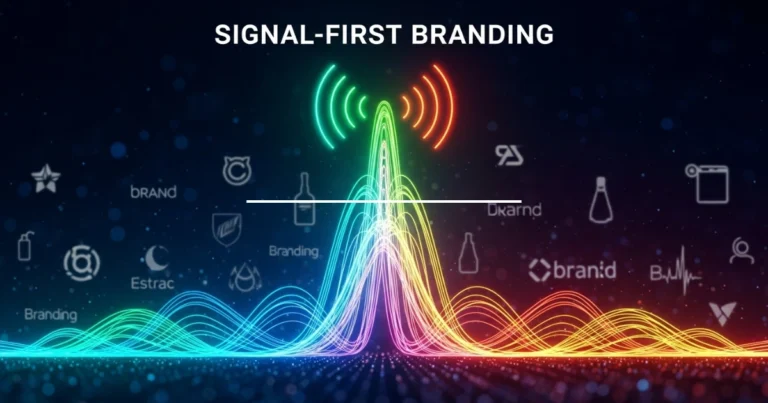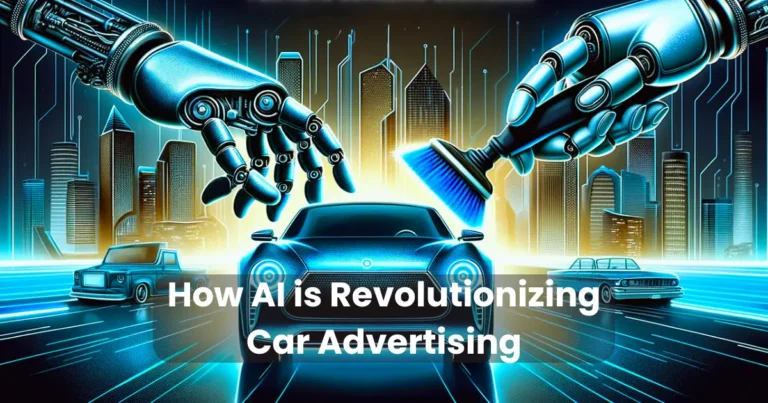AI Commercial Use Cases in 2025

Contents
AI commercial use cases are rapidly reshaping industries across the globe. From healthcare to retail, businesses are leveraging artificial intelligence to streamline operations, enhance customer experiences, and drive growth. AI’s ability to analyze vast amounts of data, automate tasks, and make intelligent decisions has made it a valuable asset in commercial settings. The commercial use of AI is not only improving efficiency but also creating new opportunities for innovation. In this article, we will explore the various ways AI is being used in different sectors, highlighting its significant impact on the way businesses operate and engage with their customers.
AI in Retail
AI commercial use cases in the retail industry have revolutionized the way businesses interact with consumers and manage their operations. Retailers are using AI to provide personalized shopping experiences, optimize inventory management, and improve customer service. Below are some key ways AI is being applied in retail:

Personalized Recommendations
One of the most prominent AI use cases in retail is personalized product recommendations. AI algorithms analyze consumer behavior, preferences, and purchasing patterns to suggest products tailored to individual customers. By utilizing machine learning and data analytics, retailers can offer personalized recommendations that increase customer satisfaction and drive sales. This technology is commonly used on e-commerce platforms, where AI-powered recommendation engines suggest items based on a user’s browsing history or similar customer preferences. As a result, customers enjoy a more engaging and personalized shopping experience.
Inventory Management
AI is also playing a crucial role in optimizing inventory management in retail. Traditional inventory management methods often rely on manual processes that can lead to errors, overstocking, or understocking. AI-powered systems use real-time data and predictive analytics to forecast demand, track stock levels, and automatically reorder products when needed. This helps retailers ensure they have the right products available at the right time, reducing the risk of lost sales due to stockouts while minimizing excess inventory. AI in inventory management not only improves operational efficiency but also enhances the overall customer experience by ensuring product availability.
By incorporating AI into these commercial use cases, retailers can enhance operational efficiency, deliver more personalized services, and stay ahead of the competition.
AI in Finance
The financial sector has embraced AI commercial use cases to enhance decision-making, improve security, and optimize services. By processing vast amounts of data at incredible speeds, AI enables financial institutions to offer smarter solutions that streamline operations and provide more accurate predictions. Here are some of the most impactful AI applications in the finance industry:

Fraud Detection
Fraud detection is one of the most critical applications of AI in finance. Financial institutions use AI algorithms to analyze transaction patterns and detect irregularities that may indicate fraudulent activities. Machine learning models are trained to recognize behaviors that deviate from normal patterns, such as unusual spending habits or suspicious transactions. By continuously learning from new data, AI systems can identify potential fraud in real-time, significantly reducing the risk of financial losses. This proactive approach is much more effective than traditional methods, as AI can detect fraud that might go unnoticed by human analysts.
Risk Assessment
AI is also transforming risk assessment in the finance sector. Traditional risk management methods often rely on historical data and static models, which can be limited in predicting future risks. AI, however, uses advanced machine learning techniques to analyze real-time data and build more dynamic models that can assess the likelihood of various financial risks. These models consider a wide range of factors, including market trends, economic indicators, and customer behavior, to predict potential risks and help financial institutions make better-informed decisions. By utilizing AI for risk assessment, financial organizations can enhance their decision-making processes, optimize lending practices, and minimize exposure to potential losses.
Through AI-driven fraud detection and risk assessment, financial institutions are improving security and making more informed, data-driven decisions. As AI continues to evolve, its role in finance is expected to expand further, bringing even more sophisticated tools to the industry.
AI in Healthcare
AI commercial use cases in healthcare have brought about groundbreaking advancements that are enhancing patient care, improving diagnostic accuracy, and optimizing healthcare operations. AI-powered tools are helping healthcare providers make faster, more informed decisions, which ultimately leads to better outcomes for patients. The following are key applications of AI in the healthcare industry:

Diagnostic Tools
AI has proven to be a powerful tool in diagnostics, particularly in the early detection of diseases. Machine learning algorithms are capable of analyzing medical images, such as X-rays, MRIs, and CT scans, to identify abnormalities that may indicate the presence of conditions like cancer, heart disease, or neurological disorders. These AI systems are trained to detect patterns in imaging data that may be difficult for human doctors to identify, allowing for more accurate and timely diagnoses. As a result, AI can significantly reduce the margin of error in medical imaging and speed up the diagnostic process, leading to better patient outcomes.
Patient Management
AI is also being used to enhance patient management by streamlining administrative tasks and improving communication between healthcare providers and patients. AI-powered chatbots and virtual assistants are helping patients schedule appointments, ask questions about their conditions, and receive personalized advice. In addition, AI can be used to monitor patient data in real-time, such as vital signs and lab results, to detect potential issues before they become critical. By analyzing patient data, AI can also identify trends and suggest preventative measures, reducing the need for emergency interventions. This not only improves patient care but also helps healthcare systems operate more efficiently.
AI’s applications in healthcare, from diagnostic tools to patient management systems, are driving significant improvements in medical practices. As AI technologies continue to evolve, their role in enhancing healthcare services is expected to expand, ultimately leading to more effective and accessible healthcare for all.
AI in Manufacturing
In the manufacturing sector, AI commercial use cases are driving innovation and enhancing efficiency across production lines. By integrating AI into manufacturing processes, companies can optimize operations, reduce downtime, and improve product quality. AI technologies, such as machine learning, robotics, and predictive analytics, are transforming the way manufacturing businesses operate. Here are some of the key applications of AI in manufacturing:

Predictive Maintenance
Predictive maintenance is one of the most impactful AI applications in manufacturing. Traditionally, maintenance schedules are based on routine checks or time intervals, which may lead to unnecessary downtime or even unplanned breakdowns. AI-powered predictive maintenance systems, however, continuously monitor the performance of machinery and equipment in real-time. By analyzing data from sensors and historical performance data, AI models can predict when a machine is likely to fail, allowing manufacturers to perform maintenance before problems occur. This not only reduces maintenance costs but also minimizes production disruptions, ensuring smoother and more efficient operations.
Quality Control
AI is also being used to improve quality control in manufacturing processes. Traditionally, quality control relied on manual inspections, which could be prone to human error or inconsistency. With AI-driven image recognition and machine learning algorithms, manufacturers can automate the inspection of products on production lines. These systems can identify defects or inconsistencies with much greater precision than human inspectors, leading to higher-quality products and fewer defects reaching the market. AI-powered quality control systems can also analyze trends in product defects, enabling manufacturers to take corrective actions and improve their processes continuously.
By implementing AI in predictive maintenance and quality control, manufacturing companies are significantly improving operational efficiency and product quality. As AI technologies continue to advance, their potential to further revolutionize the manufacturing industry remains vast, promising even greater levels of automation and precision in production processes.
AI in Marketing
AI commercial use cases in marketing have revolutionized the way businesses engage with customers and promote their products. With the power of machine learning, natural language processing, and data analytics, AI enables companies to deliver highly personalized, efficient, and data-driven marketing strategies. Here are some of the most impactful AI applications in marketing:

Content Creation
AI is playing an increasingly important role in content creation, helping marketers generate relevant, engaging material for various platforms. AI-powered tools can analyze audience preferences, industry trends, and past content performance to create articles, blog posts, social media updates, and even advertisements that resonate with targeted audiences. Natural language generation (NLG) algorithms allow AI to craft human-like text, making it an invaluable resource for producing large amounts of content quickly and efficiently. This reduces the time and effort required to develop marketing materials, allowing businesses to focus more on strategy and creativity.
Targeted Advertising
AI has significantly improved targeted advertising, allowing businesses to serve personalized ads to the right audience at the right time. By analyzing consumer behavior, demographics, and online activity, AI algorithms can predict which products or services are most likely to interest a particular individual. These insights enable marketers to create highly targeted advertising campaigns that increase the likelihood of conversion. For example, AI-powered platforms can optimize ad placement on social media, search engines, and other digital channels, ensuring that the right message reaches the most relevant audience. This not only improves advertising effectiveness but also increases return on investment (ROI) for businesses.
Through AI-driven content creation and targeted advertising, marketers are able to connect more effectively with their audiences, improve engagement, and drive sales. As AI continues to evolve, its role in marketing will likely expand even further, opening up new possibilities for personalized and data-driven campaigns that deliver tangible results.
AI in Customer Service
AI commercial use cases in customer service are transforming how businesses interact with their customers, improving both the efficiency and quality of service. By automating tasks, analyzing customer sentiment, and providing instant support, AI technologies are enhancing customer satisfaction and enabling businesses to provide more personalized experiences. Below are key ways AI is being applied in customer service:

Chatbots
AI-powered chatbots have become an essential tool for customer service, providing real-time assistance to customers across websites, apps, and messaging platforms. These chatbots use natural language processing (NLP) to understand customer inquiries and provide instant responses. By handling common questions and tasks, such as order tracking, account inquiries, and troubleshooting, AI chatbots free up human agents to focus on more complex issues. Additionally, chatbots can operate 24/7, ensuring that customers receive immediate support, regardless of time zone. This leads to faster resolutions, improved customer satisfaction, and a reduction in the volume of support tickets that human agents must handle.
Sentiment Analysis
AI is also being used to analyze customer sentiment, allowing businesses to gain valuable insights into how customers feel about their products, services, or overall brand experience. Sentiment analysis tools use machine learning algorithms to process customer feedback, reviews, and social media mentions, categorizing sentiments as positive, negative, or neutral. This enables businesses to identify potential issues or areas for improvement in real-time. By leveraging this data, companies can proactively address customer concerns, refine their offerings, and enhance their customer service strategies. Sentiment analysis can also be used to measure the effectiveness of customer service interactions, helping businesses fine-tune their approach to ensure a more positive customer experience.
By incorporating AI-driven chatbots and sentiment analysis, businesses can improve customer service efficiency, enhance user experiences, and address customer needs faster and more accurately. As AI technologies continue to evolve, their potential to further elevate customer service is immense, promising more seamless, intelligent interactions.
AI in Transportation
Artificial Intelligence commercial use cases in transportation are revolutionizing the way people and goods move, offering smarter, safer, and more efficient solutions. With the integration of machine learning, computer vision, and data analytics, AI is transforming everything from vehicle automation to route optimization. The following are key applications of AI in the transportation industry:

Autonomous Vehicles
One of the most groundbreaking AI applications in transportation is the development of autonomous vehicles. AI technologies, such as computer vision and deep learning, allow self-driving cars, trucks, and drones to navigate roads and environments without human intervention. By analyzing data from sensors, cameras, and GPS, AI systems can detect obstacles, recognize traffic signs, and make real-time decisions to ensure safe and efficient travel. Autonomous vehicles are expected to reduce traffic accidents caused by human error, improve traffic flow, and lower transportation costs. While still in the development phase, autonomous vehicles have the potential to reshape the entire transportation industry.
Route Optimization
AI is also playing a crucial role in route optimization for transportation companies. By analyzing real-time traffic data, weather conditions, and historical patterns, AI systems can determine the most efficient routes for delivery trucks, rideshare vehicles, or public transportation. Machine learning algorithms can predict traffic congestion, identify potential delays, and suggest alternative routes to minimize travel time and fuel consumption. This not only reduces operational costs but also enhances the overall efficiency of transportation networks, benefiting both businesses and consumers. Route optimization powered by AI can improve delivery speed, reduce carbon footprints, and enhance customer satisfaction by ensuring timely arrivals.
AI’s integration into autonomous vehicles and route optimization is revolutionizing transportation, making it safer, faster, and more efficient. As AI continues to evolve, these applications will only expand, offering even greater potential for innovation and improvement across the transportation sector.
Conclusion
AI commercial use cases are transforming industries across the globe, from retail and finance to healthcare and transportation. By harnessing the power of artificial intelligence, businesses are able to optimize operations, enhance customer experiences, and drive innovation in ways that were once unimaginable. The ability to analyze large amounts of data, automate tasks, and make intelligent decisions is making AI an invaluable tool across various sectors.
As AI continues to evolve, its applications will only expand, offering even more opportunities for companies to improve efficiency and competitiveness. Whether it’s through personalized marketing strategies, predictive maintenance in manufacturing, or autonomous vehicles in transportation, AI is paving the way for a more intelligent, data-driven future. Businesses that embrace these AI commercial use cases will be better equipped to meet the demands of a rapidly changing world, ensuring they remain at the forefront of their industries.






